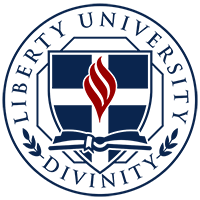History
The John W. Rawlings School of Divinity is an outgrowth of the vision of Dr. Jerry Falwell, the founding pastor of the Thomas Road Baptist Church. Dr. Falwell believed in Christian education. He believed that one of the most effective means of winning millions to Christ is by training young men and women to serve the Lord in aggressive, evangelical, soul-winning Baptist churches as pastors, staff, and members. Liberty University (then Lynchburg Baptist College) was founded in 1971 to help achieve that goal. At the heart of the college’s curriculum for all students were classes in Bible. As the college grew and reached University status, the Bible Department grew into the School of Religion, providing Bible classes for students in every major and offering majors designed to prepare men and women for vocational Christian service.
Another need, however, still existed. Professional, graduate-level training was needed for graduates of Liberty University and other colleges desiring graduate theological education as preparation for ministries in churches similar to Thomas Road Baptist Church. In 1973, Lynchburg Baptist Theological Seminary was created to address that need. It began with an enrollment of 41 students with Dr. Jerry Falwell serving as President and Chancellor.
In 2015, approval was granted by Liberty University’s Board of Trustees to combine the School of Religion with the Seminary into the School of Divinity. The School of Divinity provides quality, well-rounded education, based on academic excellence, emanating from the belief that Christian education should be superior, not inferior, to that provided by other schools. The School of Divinity is committed to the principle that a person’s most effective ministry will be in conjunction with a local church, and the vision of the School of Divinity is to equip Christians to reach the entire world through aggressive New Testament church evangelism.
Distinctives
The John W. Rawlings School of Divinity is characterized by commitment to the core doctrines of the faith and providing significant experiences to develop practical ministry skills.
The faculty of the School of Divinity are committed to modeling both scholarship and practice for students. Graduates are grounded in the knowledge of God’s Word, a desire to impact the world for God’s kingdom, and the skills to engage the culture with the gospel.
Evangelism is a core value throughout the curriculum. Every faculty member and student is expected to manifest compassion for the lost and a desire to see their salvation.
The School of Divinity is committed to the local church, and prepares graduates to enter into leadership positions in the local church and para-church organizations; therefore, experiential learning is an essential component of the School of Divinity’s programs of study.
The Mission of the John W. Rawlings School of Divinity
The John W. Rawlings School of Divinity exists to come alongside the local church to help it fulfill the Great Commission. In accordance with the mission of Liberty University and within the historic Baptist tradition, the School of Divinity provides undergraduate, graduate, and post-graduate programs that train students for traditional, Christian ministry positions. The School of Divinity offers programs designed to equip people for lay ministry, global leadership, church leadership, and advanced scholarly research.
As a Christian community, the School of Divinity seeks to cultivate spiritual growth and faithful service to Christ and His church. As an academic community, the School of Divinity seeks to impart knowledge and necessary skills to men and women for service and leadership in Christian ministry. As a service community, the School of Divinity seeks to respond to the needs of local churches and Christian ministries as they participate in worship, global evangelism, discipleship, and scholarship.
Program Goals and Objectives
In keeping with its stated mission, the School of Divinity strives to achieve the following institutional goals:
Personal Goals
- Commitment
We seek to provide an environment in which students are encouraged to strengthen their commitment to Christ, certify their call to service, and develop an abiding love for God and His Word. - Lifestyle
We seek to develop a lifestyle of actively communicating the Christian faith through personal integrity, evangelistic witness, and responsible scholarship. - Social Responsibility
We seek to foster an awareness of the Christian’s responsibility to be a productive member of society and to be responsive to the needs and concerns of diverse cultures.
Academic Goals
- Knowledge
We seek to develop cognitive skills for ministry and scholarship through rigorous interaction with the biblical text and disciplines related to professional vocation. - Understanding
We seek to provide theological, historical, and intellectual understandings necessary for a self-conscious, critical, and Christian response to the world.
Vocational Goals
- Relationships
We seek to develop communicative, administrative, and relational skills necessary for professional competence. - Ethics
We seek to provide opportunities for students to explore the moral dimensions and ethical implications of their chosen vocation. - Evangelism
We seek to cultivate sensitivity to others and a concern for world evangelization through local church ministries and vigorous defense of the gospel. - Church Growth
We seek to develop biblical and scientific expertise in establishing, developing, and sustaining growing churches and ministries.

